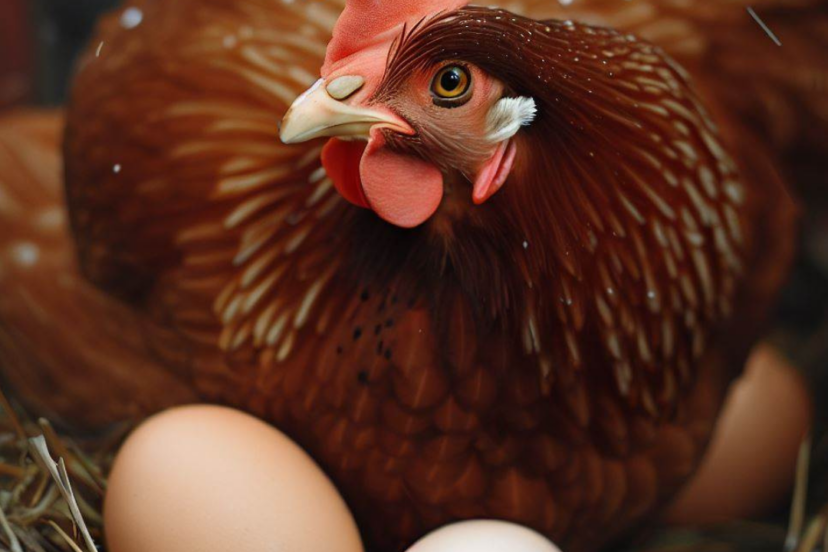Cracking the Winter Egg-Laying Mystery: Do Chickens Lay Eggs in the Winter?
As a passionate chicken enthusiast and advisor, one of the most common questions I encounter is whether chickens continue to lay eggs during the winter months. In this section, we’ll delve into the fascinating world of seasonal egg production, exploring the natural egg-laying cycle, factors influencing winter egg-laying, and strategies to encourage egg production even in colder seasons.
Understanding the Natural Egg-Laying Cycle
Chickens are influenced by natural biological rhythms that affect their egg-laying cycle. As the days shorten and temperatures drop, their reproductive systems undergo changes, often leading to a decrease in egg production. This is part of their natural instinct, as chickens require optimal conditions to hatch and raise chicks successfully.
Factors Affecting Egg Production in Winter
Several factors influence egg production during the winter months. The reduced daylight hours and colder temperatures can disrupt the hormonal balance in chickens, resulting in a decrease or temporary cessation of egg-laying. Additionally, molting, which commonly occurs in the fall, further affects egg production as hens redirect their energy towards feather regrowth.
Strategies to Encourage Winter Egg-Laying
Importance of Adequate Lighting
One effective strategy to encourage winter egg-laying is providing adequate lighting in the coop. Supplemental lighting that extends the day length to around 14-16 hours can mimic longer daylight hours, fooling chickens’ internal clocks and signaling their reproductive systems to continue egg production.
Supplemental Heat Sources for Coop Comfort
Maintaining a comfortable temperature in the coop is crucial during winter. Providing supplemental heat sources, such as heat lamps or ceramic heaters, ensures that the chickens’ physiological functions remain optimal. Coop temperatures should be above freezing but not excessively warm, as extreme heat can also disrupt egg production.
Balancing Light and Darkness for Optimal Egg-Laying
Creating a consistent light-dark cycle helps regulate egg-laying in chickens. Ensure a period of complete darkness during the night to allow hens to rest and reset their internal clocks. Consistency in light exposure helps maintain hormonal balance and supports regular egg production.
Maintaining a Nutritious Diet to Support Winter Egg Production
Protein-Rich Feed for Optimal Health
Providing a high-quality, protein-rich feed is essential for maintaining overall health and supporting egg production during winter. Choose a well-balanced layer feed specifically formulated for chickens, with around 16-18% protein content. Amino acids derived from protein are building blocks for egg development.
Incorporating Omega-3 Fatty Acids
Omega-3 fatty acids play a crucial role in egg quality and can be beneficial during the winter months. Including omega-3 supplements or feed rich in flaxseed, fish meal, or algae in the chickens’ diet can enhance the nutritional profile of their eggs, providing added health benefits for consumers.
Seasonal Treats to Boost Egg Production
Offering seasonal treats can provide extra nutrition and stimulation for chickens during winter. Consider providing small amounts of fresh fruits and vegetables, such as cooked pumpkin or winter squash, as these treats are not only nutritious but can also help maintain interest and support egg-laying.
Conclusion
In conclusion, chickens can indeed lay eggs in the winter, although their egg production may decrease due to natural biological factors. By understanding the natural egg-laying cycle, addressing environmental conditions, and providing a nutritious diet, you can encourage winter egg production in your flock. Remember to implement appropriate lighting, maintain comfortable temperatures, and offer a balanced diet to support your chickens’ well-being and optimize egg production throughout the colder months.
FAQs
1. Will chickens stop laying eggs completely during winter?
While egg production may decrease during winter, chickens can still lay eggs, especially with the right conditions and care.
2. How can I provide supplemental lighting in the coop for winter egg production?
Use artificial lighting, such as LED bulbs or fluorescent lights, to extend the day length. Set up timers to ensure consistent and appropriate lighting.
3. Can extreme cold temperatures affect egg production in chickens?
Yes, extreme cold temperatures can disrupt egg production. It’s important to provide a comfortable and draft-free environment for chickens during winter.
4. What should I feed my chickens to support winter egg production?
Offer a well-balanced layer feed with a higher protein content, along with supplemental omega-3 sources and seasonal treats to support egg-laying.
5. Are there specific breeds that are more likely to lay eggs in winter?
Some chicken breeds are more winter-hardy and may continue to lay eggs during colder months. Examples include Rhode Island Reds, Australorps, and Sussex chickens.
*We may earn a commission from purchases made through our links, at no cost to you. This does not affect our product recommendations. Please see our disclosure to learn more.




